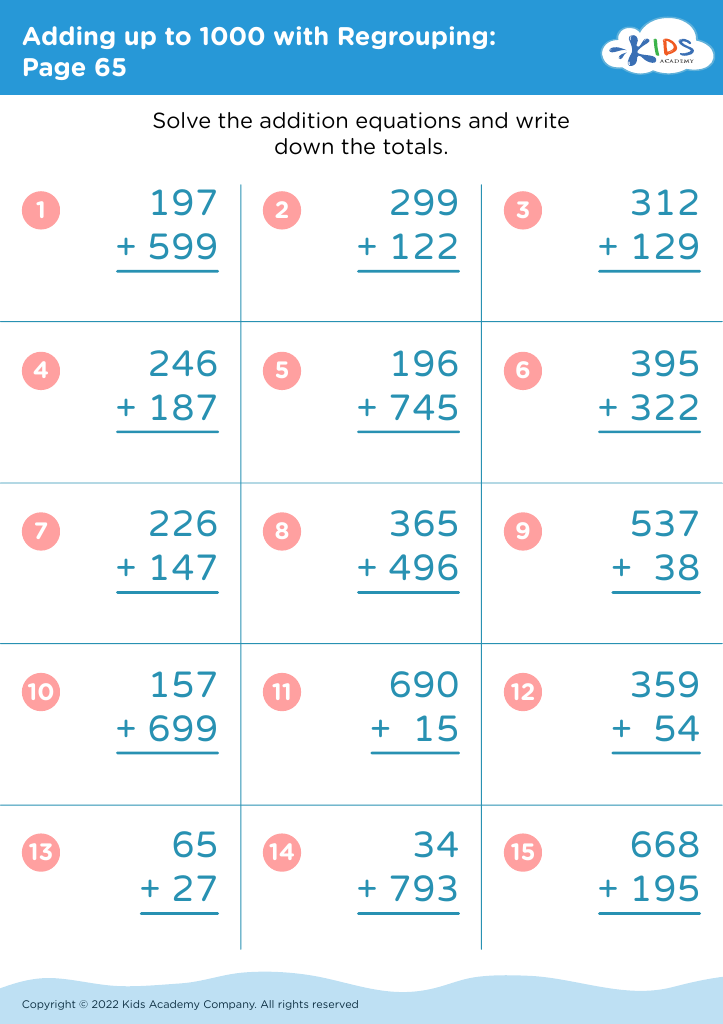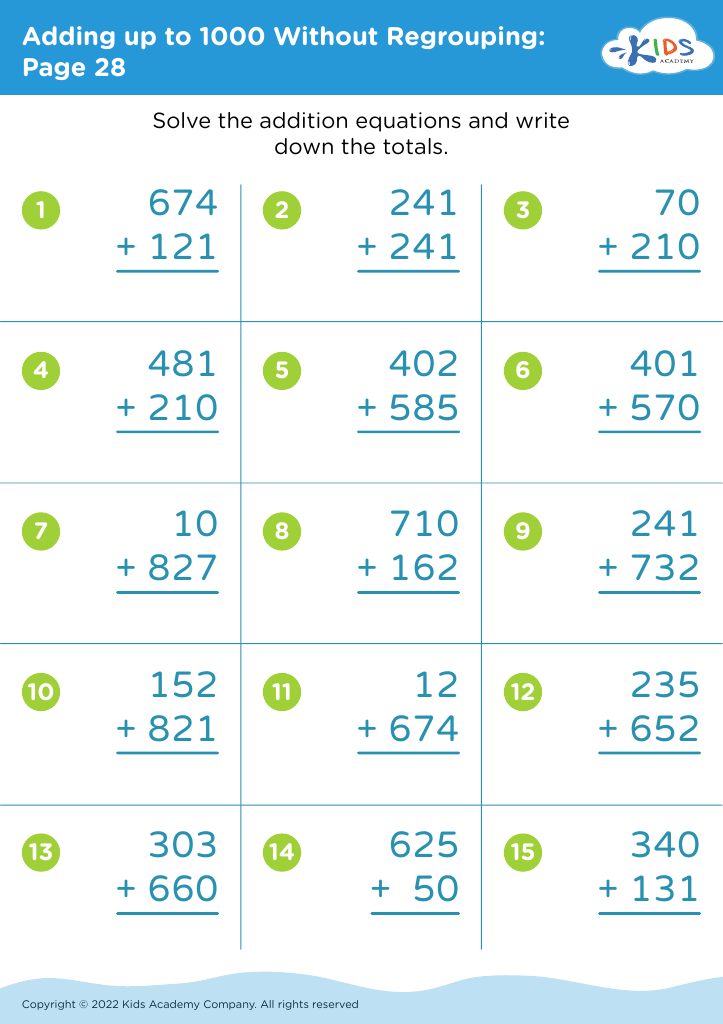Addition of fractions Worksheets for Ages 5-9
3 filtered results
-
From - To
Discover our engaging Addition of Fractions Worksheets, specifically designed for children ages 5 to 9! These worksheets provide a fun, interactive way to help young learners grasp the foundational concept of adding fractions. With colorful illustrations and age-appropriate exercises, kids will build confidence in their mathematical skills while learning to combine fractions with like denominators. Perfect for home practice or classroom activities, our worksheets encourage critical thinking and problem-solving abilities. Explore various engaging problems that cater to different learning styles and keep your child motivated. Start your journey to mastering fractions with our assortment of quality worksheets today!
Understanding the addition of fractions is foundational for young learners aged 5-9. This concept nurtures critical mathematical skills that extend beyond numbers, fostering problem-solving abilities and logical thinking. As children begin their journey into complex mathematics, mastering fractions encourages cognitive development and lays the groundwork for future success in math-intensive subjects.
For parents and teachers, focusing on the addition of fractions is vital for helping children grasp the relationship between parts and wholes. Engaging in hands-on activities, such as sharing snacks or measuring liquids, makes learning relatable and enhances comprehension. Introducing concepts like common denominators helps build perseverance and adaptability—skills that are beneficial in various real-life scenarios.
Furthermore, a strong grasp of fractions translates to improved performance in higher-level math, reinforcing the importance of this foundational concept. By addressing potential difficulties early on, parents and teachers can instill positive attitudes towards math, combating issues like math anxiety. Overall, supporting young learners in their understanding of fraction addition enriches their educational experience, promotes enthusiasm for math, and equips them with essential skills for lifelong learning. Engaging with this concept now sets a vital precedent for advanced mathematical proficiency in their future academic pursuits.


















